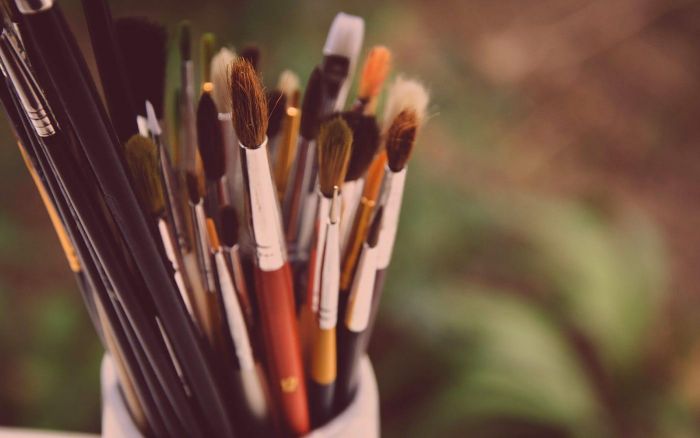Parenting vs. Creativity

Several weeks ago, my wife alerted me to an article by Kim Brooks titled “A Portrait of the Artist As a Young Mom” that basically asked whether parenting, and domestic life in general, was the enemy of being creative (read: artistic) and doing creative work. The article generated a lot of debate and discussion amongst our friends, many of whom are both parents and creative types (artists, musicians, writers).
I’ve been meaning to write about the article for awhile now. I’ve fleshed out my initial reactions to the piece a bit more.
1) The notion put forth by one of Brooks’ interviewees that art’s purpose is to “unsettle, to question, to disturb what is comfortable and safe” is rather limiting and narrow. Can and should art do that sort of thing? Absolutely. Is that the sole purpose of art? Absolutely not. But if that’s the presupposition that you’re working from — and I’ll admit, it does sound very nice, dramatic, and all-consuming — then it’s bound to collide with other priorities (e.g., raising a family).
2) That being said, I can certainly sympathize with the author’s struggle. It would be easy to call her out for de-prioritizing parenting, but the truth is that I constantly wrestle with finding enough time to write, edit, design, code, etc., in the midst of parenting. I used to do a lot of that late at night, staying up until 3am without a second thought. I’m finding it harder to do that now since I have to get a couple of kids ready for school the following morning and/or help with kids who wake up in the middle of the night. As much as I’d like to hide myself in my office, I simply can’t do that very often anymore.
As such, I often feel torn. Thankfully, my wife gives me a couple of “bachelor weekends” every year during which I can have the house to myself and get stuff done. We’ve also looked into the possibility of doing work retreats — but there’s certainly a trade-off there (i.e., my life gets easier while hers gets a lot more hectic) and I’m not sure if it’s a trade-off worth making right now.
3) One reason for this whole debate is that, as a culture, we’ve idolized both Art and Parenting. Certain segments in our culture see Art as this great, triumphant ideal, this way to bring order out of chaos. Other segments see Parenting in the same way. Both of these approaches are idolatrous, turning very good things (e.g., creating artifacts that can communicate truth and beauty, raising and nurturing a family) into ultimate things that define our identities and give our existence meaning and purpose. Which sucks for those of us who may find ourselves “stuck” (for lack of a better term) between these two competing ideals/idols and who strive for excellence in both types of pursuits.
4) The best part of the article comes at the end, when Ms. Brooks talks to a friend who is an artist and mother of a teenager:
I am nodding as she tells me this, resigning myself to the idea that these two threads will never truly be entwined. Now as ever. Then, she goes on and pulls out the thread, leaving me with something much messier but also more true. “But,” she says. “But, but … Here’s the thing. Despite everything, I have to say that having the kids grew me up in a way nothing else could have. And basically, I needed ten years of mothering before I was like, Whoa, hey, this is what I’m meant to write. And now I’m working on a novel that I love and it feels like the kids gave me that by remaking me.”
“By teaching you about intimate human relationships?”
“Yes, and also by teaching me not to fear pain so much, to understand, experientially, that pain and joy are inextricably linked. That all the priorities we get handed by our culture are basically bullshit. And that we are not in control. That’s one of the major things parenting is teaching me, the balance between letting go in writing and practicing craft, the balance between being ferocious with my imagination and rigorous in my practice. Shape and chaos. Learning to shape chaos.”
“It feels like your husband and children gave you that?”
“Of course,” she says. “Who else?”
In our desire to keep our lives organized so that we can get things done and feel like we’re in control lies a temptation to compartmentalize — to say that I’m this kind of person during this part of the day or in this particular setting, and that I’m this kind of person in a different context. Or to say that my interests and responsibilities will never affect each other. That’s probably necessary to a degree; for example, I do my best to not bring work with me when I’m with my kids because I don’t want them to feel like they’re less important or that they have a workaholic for a dad.
However, compartmentalization also leads to a dissonant life. We are made up of all of our interests, passions, and responsibilities, and to pretend otherwise — to do our best to keep them from affecting each other and shaping us holistically — can lead to a diminished life, even if that’s the life we think we truly want to have. It might require humility to realize that our lives are not our own, and that sometimes, we need to be content and find beauty and meaning where we’re at rather than where we’d like to be. But in a hyper-individualistic culture that constantly bombards us with messages telling us that our identities and roles can be whatever we choose them to be, a little humility isn’t such a bad thing.